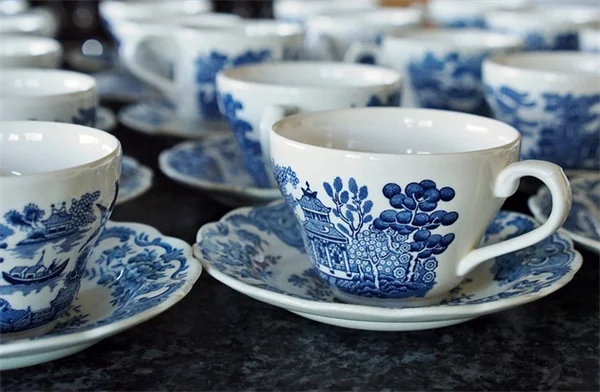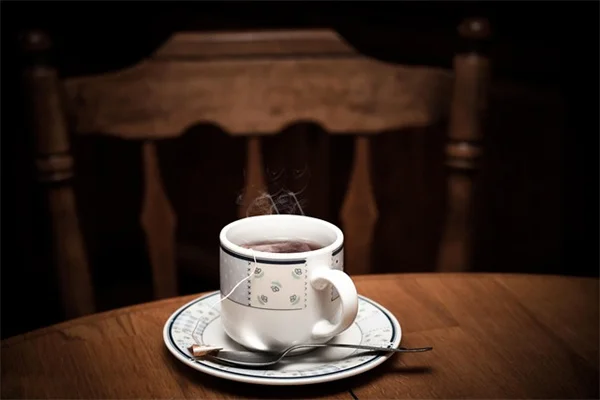Does Vegetable Oil Expire? Discover the Truth About Shelf Life and Storage Tips!
Does vegetable oil expire? The simple answer is: no, vegetable oil doesn’t technically expire like perishable items do! However, it can go bad over time, turning rancid and losing its effectiveness in cooking. Many of us might wonder how long we can keep that bottle in the pantry, especially when we see a best by date. In reality, vegetable oil can last for 1-2 years unopened and about 6-12 months once you've cracked it open, provided you store it properly. I’ve learned through experience that keeping my oil in a cool, dark place away from heat sources can help extend its life significantly. So, let’s dive deeper into how to tell if your vegetable oil is still good and some clever storage tips to keep it fresh longer!
E.g. :Does Castor Oil Expire? Discover the Truth About Its Shelf Life and Freshness!
- 1、The Ultimate Guide to Vegetable Oil Shelf Life
- 2、What Makes Vegetable Oil Go Bad?
- 3、Spotting Bad Oil Like a Pro
- 4、Storage Hacks That Actually Work
- 5、Creative Uses for Old Oil
- 6、Health Impacts You Should Know
- 7、Final Thoughts on Oil Care
- 8、FAQs
The Ultimate Guide to Vegetable Oil Shelf Life
What exactly is shelf life anyway?
You know when you buy a gallon of vegetable oil and wonder "how long will this actually last?" That's what shelf life is all about! Vegetable oil shelf life refers to how long your cooking oil stays fresh and usable before it turns rancid. Think of it like milk - it doesn't instantly go bad on the expiration date, but you'll definitely know when it's time to toss it!
Here's the deal: refined oils (like regular vegetable oil) typically last longer than fancy unrefined oils. Why? Because they go through more processing that removes impurities. I once kept a bottle of vegetable oil in my pantry for nearly two years past its "best by" date - and guess what? It was still perfectly fine for frying chicken! But remember, storage conditions make all the difference.
Does vegetable oil really expire?
Let me ask you this: have you ever sniffed old oil and thought "whoa, that smells like crayons?" That's your first clue! While vegetable oil doesn't technically "expire" like milk does, it does go bad eventually.
The truth is, that "best by" date is more of a suggestion than a hard rule. Most vegetable oils can last:
- 1-2 years unopened in proper storage
- 6-12 months after opening
- Potentially longer if you store it like a pro
What Makes Vegetable Oil Go Bad?
 Photos provided by pixabay
Photos provided by pixabay
The terrible trio: light, heat, and air
Imagine this: you leave your vegetable oil bottle next to the stove where it gets:
- Blasted by heat every time you cook
- Exposed to sunlight from the window
- Opened and closed constantly letting in air
Pro tip: I keep my cooking oils in a dark cabinet far from the stove. My sister stores hers in the fridge (which works great for some oils but can make others cloudy). Find what works for your kitchen!
How different oils compare
Not all oils are created equal when it comes to shelf life. Check out this handy comparison:
| Oil Type | Average Shelf Life | Storage Tip |
|---|---|---|
| Regular Vegetable Oil | 1-2 years | Pantry is perfect |
| Olive Oil | 6-12 months | Dark glass bottle |
| Coconut Oil | 2+ years | Cool pantry or fridge |
| Sesame Oil | 6-8 months | Refrigerate after opening |
See what I mean? That sesame oil in your fridge door might need replacing sooner than you think! 😉
Spotting Bad Oil Like a Pro
The sniff test never lies
Here's a question: would you drink milk that smells sour? Of course not! The same logic applies to oil. Fresh vegetable oil should smell... well, like nothing really. If you get a whiff and think "ew, that smells like old crayons or wet cardboard," that's nature's way of saying "toss it!"
I'll never forget the time my roommate used rancid oil to make pancakes. Let's just say we ordered pizza that night instead! The smell was so strong it lingered in our apartment for days. Learn from our mistake - when in doubt, throw it out!
 Photos provided by pixabay
Photos provided by pixabay
The terrible trio: light, heat, and air
Pour a little oil into a clear glass and check for:Cloudiness - Fresh oil should be clearDarkening - Significant color change is bad newsSediment - Any floaties mean trouble
Fun experiment: compare new oil to old oil side by side. The difference can be shocking! My grandma taught me this trick - she could spot bad oil from across the kitchen with her eagle eyes 👀
Storage Hacks That Actually Work
Location, location, location!
Where you store your oil makes ALL the difference. The ideal spot is:
- Cool (not cold)
- Dark
- Away from heat sources
- In an airtight container
Did you know that clear glass bottles let in light that can degrade oil? That's why many premium oils come in dark green or brown bottles. Smart, right? If your oil came in plastic, consider transferring it to a colored glass bottle for longer life.
The great fridge debate
Here's where oil storage gets controversial! Some people swear by refrigerating oils, while others say it causes cloudiness and texture changes. The truth? It depends on the oil!
Oils that do well in the fridge:Nut oils (like walnut or almond)Flaxseed oilSesame oil
Oils better kept at room temp:Vegetable oilCanola oilOlive oil (unless you don't mind it solidifying)
Creative Uses for Old Oil
 Photos provided by pixabay
Photos provided by pixabay
The terrible trio: light, heat, and air
Before you pour that questionable oil down the drain (which can clog pipes, by the way), consider these brilliant alternatives:
1. Homemade soap - With some lye and careful handling, rancid oil transforms into luxurious soap bars. My neighbor makes the most amazing lavender-scented bars from old cooking oil!
2. Wood conditioner - A thin coat of old vegetable oil can bring new life to dry wooden utensils or furniture. Just buff it in well!
3. DIY fire starters - Soak cotton balls in oil and store in mason jars for perfect camping fire starters. Much cheaper than store-bought versions!
When to absolutely say goodbye
While repurposing is great, sometimes oil is just too far gone. If your oil:
- Smells strongly rancid
- Has visible mold
- Feels sticky or thick
Remember my roommate's pancake disaster? We learned that lesson the hard way. Now I'm super careful about checking my oils regularly. Your future recipes (and taste buds) will thank you!
Health Impacts You Should Know
Why rancid oil is no joke
Here's something that might surprise you: using bad oil isn't just about taste - it can actually affect your health! Rancid oil contains free radicals that can:
- Cause inflammation in your body- Potentially increase cancer risk- Lead to digestive discomfort- Create unpleasant cooking experiences
I once got a terrible stomachache after eating fries cooked in old oil at a questionable food truck. Never again! Now I'm extra careful about oil quality both at home and when eating out.
The freshness factor
Fresh oil doesn't just cook better - it's better for you! Quality oil:
- Provides healthy fats
- Cook foods more evenly
- Tastes way better
- Won't make you regret your meal choices
Pro tip: I keep a sharpie in my kitchen to write opening dates on oil bottles. Simple but effective! No more guessing games about how long something's been open.
Final Thoughts on Oil Care
Making oil maintenance easy
Keeping track of your oils doesn't have to be complicated. Here's my simple system:1. Store properly (cool, dark, sealed)2. Label with dates3. Do quick smell/visual checks4. Rotate stock (first in, first out)
It takes maybe 30 seconds when putting away groceries, but saves so much hassle later. My kitchen runs so much smoother since implementing this!
Your oil, your rules
At the end of the day, trust your senses. If something seems off about your oil, it probably is. Don't be like me and my roommate with our infamous pancake disaster - be proactive about oil care!
Remember: good oil makes good food. And isn't that what cooking's all about? Now go check those bottles in your pantry - your future self will thank you! 🍳
In wrapping up our discussion on does vegetable oil expire, I hope you now feel more empowered to manage your cooking oils effectively. We’ve covered how vegetable oil doesn’t really expire in the same way milk does, but it definitely can go bad. Remember to keep an eye on that "best by" date and trust your senses—if it smells funky or looks off, it's probably time to toss it. With proper storage, you can extend the life of your oil significantly, whether you choose to keep it in a cool, dark place or even in the fridge, depending on the type.
As someone who's learned the hard way, I can't stress enough the importance of checking your oils regularly. I encourage you to take a moment today to inspect your bottles and implement some of the storage hacks we discussed. Not only will this keep your meals tasting great, but it will also ensure you’re cooking with oils that are safe and healthy for you. Let's keep our kitchens running smoothly and our meals delicious—because good oil really does make good food! If you have any tips or experiences to share, drop a comment below! I’d love to hear from you! 🥗
E.g. :Is it ok to use vegetable oil that expired 2 years ago? : r/AskCulinary
FAQs
How can I tell if my vegetable oil is still good?
Great question! The best way to check if your vegetable oil is still good is to use your senses. Start with the sniff test: if it smells off, like crayons or wet cardboard, it's time to toss it. Also, visually inspect the oil. Fresh vegetable oil should be clear, so look out for any cloudiness, darkening, or sediment that might indicate spoilage. Trust me, doing this simple check can save you from a cooking disaster!
What should I do with old vegetable oil?
Instead of just pouring old vegetable oil down the drain, which can cause plumbing issues, consider repurposing it! You can make homemade soap, use it as a wood conditioner for your furniture, or even create DIY fire starters for your camping trips. These alternatives are not only eco-friendly but can also be a fun way to get creative with what you might think is waste!
Is it safe to refrigerate vegetable oil?
Refrigerating vegetable oil can be a bit of a debate among cooks. While some oils, like nut oils and flaxseed oil, do well in the fridge, others like standard vegetable oil or canola oil are better kept at room temperature. Keeping them in a cool, dark place away from heat sources is often the best bet. If you do choose to refrigerate it, just know it might become cloudy, but that doesn’t mean it’s gone bad!
Can I still use vegetable oil after the "best by" date?
Absolutely! The "best by" date is more of a guideline than a strict rule. Many vegetable oils can last 1-2 years unopened and about 6-12 months after opening if stored properly. Just remember to check for signs of spoilage, like an off smell or unusual appearance. If it seems fine, you can definitely still use it for your cooking!
What are the health risks of using rancid oil?
Using rancid oil isn't just about bad taste; it can actually harm your health. Rancid oil contains free radicals that may lead to inflammation, increase cancer risk, and cause digestive discomfort. I learned this the hard way after a meal cooked in bad oil left me with a stomachache. Always check the quality of your oil to keep your meals healthy and enjoyable!






